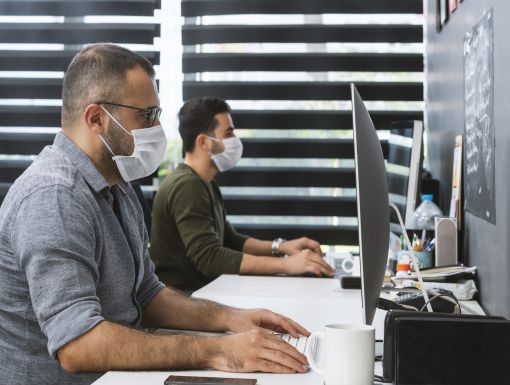
COVID-19 Patient's Road to Recovery
“I’m here and I’m grateful,’’ Wanda Chatman said, the first day we met.
Chatman is a mom, grandma, daughter, sister, friend and so much more. She is retired and active in her community. Before the quarantine, Chatman loved to sing at church and hopes to one day join the choir. She loves to sew and craft, and event décor is her specialty.
“I like to help people. If I see a need, I try to do it,” Chatman says.
About two months ago, Chatman woke up with shortness of breath, pain across her chest and an “inward chill” that wouldn’t go away. She visited an Urgent Care by her house, assuming her asthma was acting up again, was given her typical asthma medication regimen and was told to monitor her symptoms. After she finished taking her prescription, her symptoms did not improve. Her daughter and sister-in-law, who is a nurse, finally convinced her to go to the Ochsner Medical Center’s Emergency Department on Jefferson Highway.
Her daughter brought her to the Emergency Department where she tested positive for COVID-19. Once admitted, due to protocols designed to protect patients and family during the COVID-19 outbreak, her daughter was not allowed to accompany her mother and was told to self-quarantine and self-monitor for 2 weeks. Chatman was in the hospital for two weeks.
“I could not have asked for better people to take care of me. All things considered, it was a great experience,” Chatman says.
Thankfully, Chatman recovered and was discharged. Fortunately, Chatman has an amazing support system. Once Chatman was discharged, her daughter moved her into her own home for extra support, but the first week being home from the hospital was tough.
“It was just a big adjustment not being able to move around like I used to,” Chatman says. “The hardest was just not being able to do the things I wanted and needed to do for myself.’’
Chatman says it’s hard to perform daily tasks around the house, such as washing the dishes, sweeping and mopping and ironing. Even standing up is a challenge.
Chatman first came to Occupational and Physical Therapy a week after being discharged from the hospital. She shared her story, explained her limitations and challenges and discussed her goals.
"I just want to be able to go out and enjoy things. I don't want to slow anyone down. I don't want to be the one people have to wait on," Chatman says.
Chatman has been receiving physical and occupational therapy for over almost two months now. In therapy, Chatman is a superstar. Her motivation and perseverance are inspiring to witness. She is patient, and she is kind. And although it is frustrating for her when seemingly simple tasks take a lot of energy, she is always up for the challenge.
At home, Chatman not only has a great cheerleading squad but also some great coaches. Her granddaughter does her home exercise program with her and keeps her accountable. “I have a tough coach. But I’m seeing progress, little by little, slowly but surely,” Chatman says.
Chatman’s life looked very different two months ago. She was frequently out and about, living and caring for herself independently, enjoying her friends and family and taking care of others. For Chatman, COVID-19 has impacted her life in more ways than one. It has been an adjustment she never wanted to have to make. She is living in her daughter’s home, and although she enjoys, is not her space. She no longer has the lung capacity to sing; cleaning the kitchen is a chore that requires multiple rest breaks; walking from her bedroom to the bathroom feels like a marathon.
The diagnosis not only impacts the body physically but also mentally. Being diagnosed with COVID-19 can feel very isolating, regardless of how amazing your support system is. Fear of the unknown can increase feelings of stress and the uncertainty in the air can increase our anxieties.
But just as Chatman has shown us and beautifully explained, “We just have to take it one day at a time.''
Chatman is a success story. She is improving every day. And although your story or your loved one’s story may be slightly different than hers, the lessons we can take away are the same:
Be grateful for what you have.
Take it one day at a time.
Sometimes, being forced to slow down is a gift.
Be kind and compassionate to yourself.
Allow yourself to process your emotions however you need.
Don’t be afraid to ask for help.
It may not be easy, but you are worth it.

